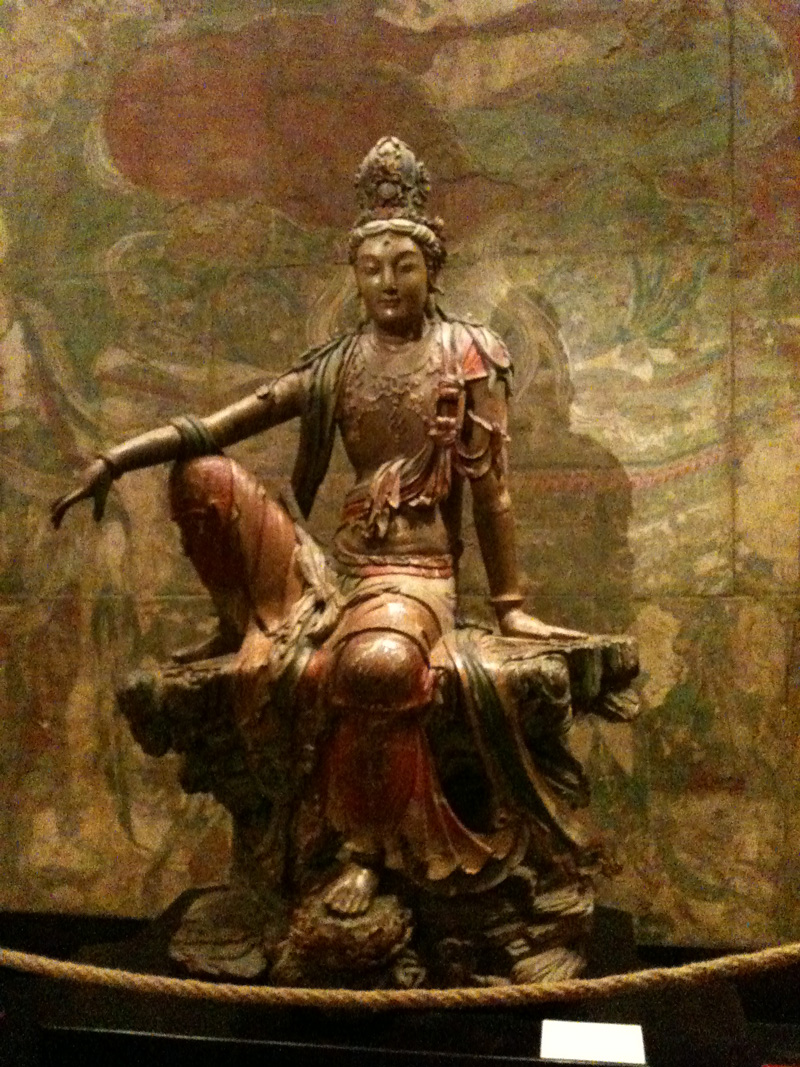
Mahayana Mind Training
This Mahayana Mind Training retreat invites you to explore practices that cut through reactive patterns and transform how you relate to life. In each session, Ken McLeod uncovers ways to cultivate presence, transform energy, and approach challenges with compassion. Rooted in centuries-old wisdom, this series offers fresh relevance for modern life and are suitable whether you’re new to mind training or have been practicing for years.
-
1. Mind Training: A Mahayana Approach to Practice
"It’s a very simple practice, as Kongtrül says: 'Profound yet easily practiced,'" Ken reflects on the power of Mahayana mind training. This session explores practices for cultivating presence, transforming energy, and dismantling reactive patterns, with a particular focus on how self-cherishing creates imbalance and suffering—and how practice can dismantle this deeply ingrained pattern.
-
2. The Origins and Purpose of Mind Training
"The essence of Buddhist practice is bodhicitta—the union of compassion and emptiness," Ken explains. This talk traces the historical roots of Mahayana mind training to Atisha and the teachings he brought to Tibet. Ken explores how mind training fundamentally shifts one’s relationship with experience by fostering qualities like compassion and clarity, making it possible to meet challenges with greater wisdom and openness.
-
3. Groundwork and the Two Truths in Practice
"We have a meditation practice, our formal practice, and then we have what we call our lives. And right there we’ve made a division," Ken explains. In this talk, he challenges the myth of integrating practice and daily life, instead encouraging clarity about what practice looks like and how it relates to life. Ken explores the groundwork of Mahayana mind training through the lens of ultimate and apparent truths, offering practical ways to refine your understanding and approach.
-
4. Taking and Sending: A Practice of Compassion
"Our fundamental nature is compassion," Ken explains, as he introduces the practice of taking and sending (tonglen). This session provides detailed instructions for using the breath to take in the suffering of others and send them our happiness, health, good fortune, or other beneficial qualities. Ken explores how this practice dismantles self-cherishing and creates the conditions for awakening compassion and balance in daily life.
-
5. Refining Taking and Sending Practice
"You work the edge. The edge is where it bites," Ken advises, responding to questions from students on refining the practice of taking and sending. This session explores the balance between applying effort and staying soft, emphasizing how to work with emotional resistance skillfully. Ken offers practical strategies to deepen your meditation practice while maintaining engagement without overwhelm.
-
6. The Five Forces and Measures of Proficiency
"Mindfulness is just remembering what you’re doing," Ken explains as he introduces the five forces of Mahayana mind training: intention, familiarization, virtuous seeds, regret, and aspiration. This session provides practical insights into applying these forces to create clarity and consistency in practice while examining the measures of proficiency that reflect a mature relationship with mind training.
-
7. Ethics and Balance in Mind Training
"Don’t protect any area of your life from practice," Ken advises, emphasizing how ethical behavior prevents imbalance and fosters clarity. This session explores the role of ethics in Mahayana mind training, showing how engaging all areas of life in practice supports waking up. Ken provides practical guidance for addressing ethical challenges with openness and attention.
-
8. Guidelines for Effective Mind Training
"Use one practice for everything," Ken advises, highlighting the adaptability of taking and sending (tonglen). This session explores how to apply this simple, powerful practice in any situation, both on and off the cushion, and how to avoid pitfalls that hinder effective engagement with Mahayana mind training.
-
9. Nothing Left Out: Meeting Every Experience
Ken reflects on how mind training makes adversity part of the path, cultivates compassion, and supports living with clarity and presence. "When I die, I’ll have no regrets," Ken quotes Chekawa, encapsulating the essence of Mahayana mind training. He offers practical advice and reflections to help practitioners work fruitfully with these teachings.